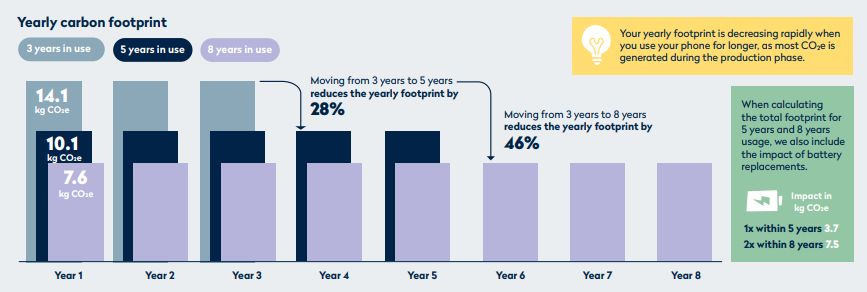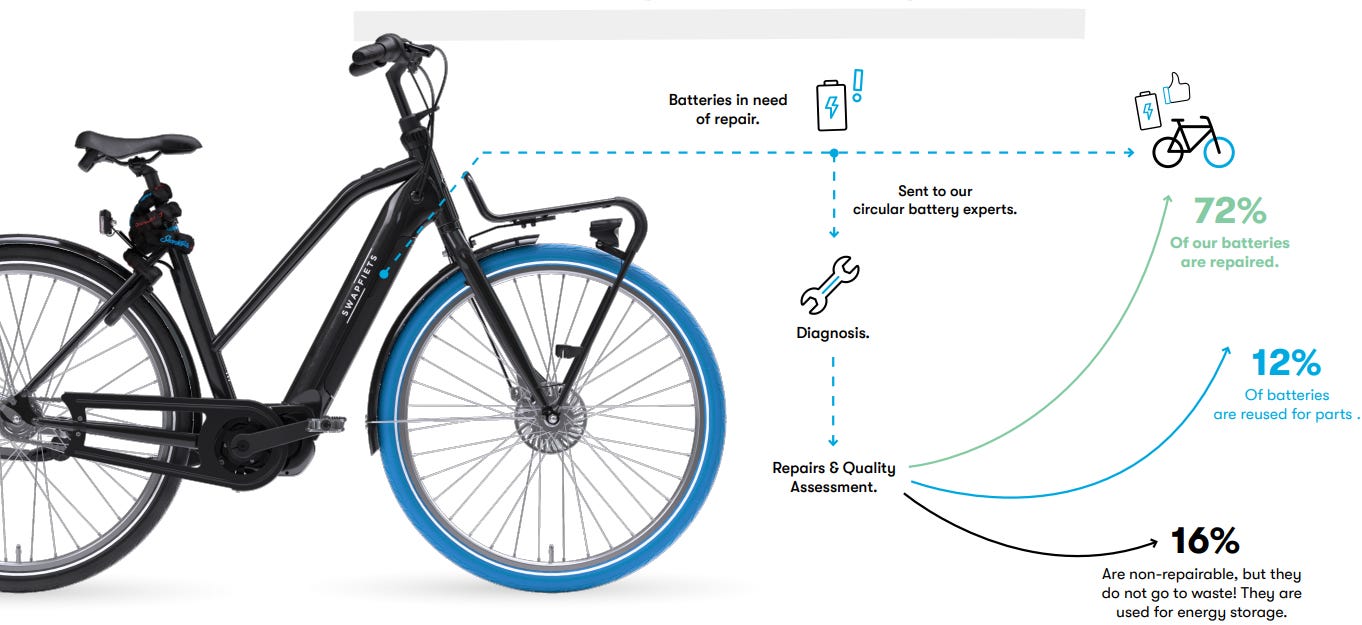⭐ Are subscription models better or worse for the planet?
+ good news, upcoming events + our interview Sarah from Citizens of Soil
Happy Tuesday! Every week we bring you the past week’s Good(s) News, fresh events and opportunities in our network, and spotlight either a brand we love or a topic we’re fascinated by. Our goal? To leave you inspired for the week ahead (and help you look smart to your colleagues). Let’s dig in.
Not just happy Tuesday, happy New Year from us as well! Who doesn’t love reinventing themselves in January? After a break from work and an excessive amount of cheese, we are ready to cut excess out of our lives and out of our newsletter. As we start the new year we are going to start delivering our juicy and fresh content…in a leaner format. Think high quality, think concise, think sleek, think… about forwarding this newsletter to all of your friends (what, it was worth a try, right?). Each week we’ll either spotlight a topic we’ve been digging into as a team (“In the Loop”) or hearing from a brand we know and love (“The Check-Out”). Right, more on that soon. But for now, back to the topic of optimising for the year ahead.
How many of you are checking your finances and cancelling subscriptions left, right and centre? Or signing up to lots of memberships and subscriptions that will CHANGE YOUR LIVES? Today, Katherine helps us keep one foot firmly grounded by checking the impact of subscription models.
Keep scrolling to discover:
Our weekly Good(s) News roundup!
In Focus: Katherine explores the impacts of subscription models
Bulletin Board: 2 events on our radar and 3 Sustainability Manager jobs
In case you missed it: Our interview with Sarah from Citizens of Soil
> Last week in consumer goods x climate…
The Good(s) News
Gü becomes a B Corp, isn’t that sweet? So does Isle of Wight Tomatoes 🍅, double hurray!
Waterdrop have dropped their latest impact report. Only 0.03 kgCO2e/Drink 💧 not bad considering a can of coke has about 0.17kgCO2e!
THIS launches new ad in time for Veganuary. Will it win you over?
Beyond Meat delivers the data. Compared a beef-based steak they report 88% less land use.
Have good news? Share it with us - info@followingthefootprints.com!
> A message from this week’s sponsor…
Greenly has worked with brands like LVMH, HelloFresh, L’OREAL, Lacoste and Huawei. Book a free consultation, and a demo of their software here:
> In Focus…
Is Owning So Last Season?
Imagine a world where owning less doesn’t mean having less. In many ways, we’re already living it. Subscription models are transforming how we consume everything – from fashion to technology – offering convenience, access, and sometimes even sustainability. But are these models truly better for the planet, or are they just a fresh take on consumption culture?
Subscription-based services grant access to products or services for a limited time rather than permanent ownership. Instead of buying, you rent, borrow, or replenish regularly. But while we’ve all been binging on Netflix for years, subscription models are now reshaping industries like clothing, electronics, and even transportation. The concept is straightforward: by sharing resources, we can reduce waste and overproduction.
In an age of overconsumption, as highlighted in Netflix’s documentary Buy Now (would recommend!), we need to rethink our consumption patterns – not only to preserve resources for the future but also to protect the ones we currently rely on.
When more isn’t merrier
In the past we’ve covered a number of articles on waste and overconsumption, so let’s revisit some sobering statistics. In 2019, the UN Alliance for Sustainable Fashion reported that the average consumer purchases 60% more clothing than they did 15 years ago, with each item being worn just seven times before being chucked out. In the UK, 40% of 16-24 year olds buy clothes online at least once a week, and globally, 45% of emissions are tied to the production and use of goods and food.

From runway to ride: brands that get sharing right
Some companies are reimagining the traditional “purchase-use-dispose” model by promoting more mindful consumption. For instance, Rent the Runway, Hurr and By Rotation provide high-end fashion rentals, enabling customers to wear designer clothing without owning it. This reduces demand for fast fashion and promotes reuse.
Even the tech industry is stepping up. Fairphone encourages customers to lease modular devices that can be easily repaired, empowering consumers to extend the life of their gadgets. This approach supports a circular system, reducing electronic waste – the world’s fastest growing waste stream – which often contains harmful substances like heavy metals, flame retardants and plastics.

In transportation, Swapfiets offers built-to-last bicycles for rent with free repairs and maintenance. By ensuring the bikes last longer and remain in circulation (see image below on how they promote circularity during their repairs), the company fosters a culture of responsible consumption.

Rent, return, and rethink
However, not all subscription models are created equal. Consider mobile network providers offering new phones every two years on contract. While convenient, this approach fuels companies like Samsung and Apple to release ever-newer models (how are we already on iPhone 16?!), perpetuating planned obsolescence and encouraging consumers to chase the latest gadgets.
The sustainability of subscription services hinges on several factors, including efficient logistics, durable product design, and robust systems for reuse or recycling. Without these elements, the environmental footprint of producing more, frequent shipping and returns can outweigh the potential benefits.
Don’t let your subscriptions make you a passive over-consumer!
The key takeaway? Subscription models can benefit the planet when they prioritise thoughtful design and long-term impact over short-term convenience. They challenge us to shift from a mindset of ownership to one of access, which has the potential to redefine sustainable consumption. So take a moment and consider: which subscriptions are lowering your impact and which can be cancelled in your spring clean?
Follow up with…
Article: Most subscription services are not delivering on sustainability, UNEP
Article: The Climate Impact of Subscription Services, Commons
> Bulletin Board
📌 Promising start to 2025
New Year, New Job?
London, UK - Senior Sustainability Manager - Eat Real + PROPER
Leicester, UK - Senior Sustainability Manager - Next
Remote, UK - Global Sustainability Reporting Lead - Specsavers
Two cool events on our radar:
Have a job or an event you’d like to share with us? - info@followingthefootprints.com
> Finally, in case you missed it…
Want more? Check out our Website! You can find more about the team behind this newsletter, dig through our content archive AND check out our handy databases there too.
Have ideas for what we should write about next? Reply to this email! We’re always looking for inspiration from folks like you.
Until next time!
Team FTF




